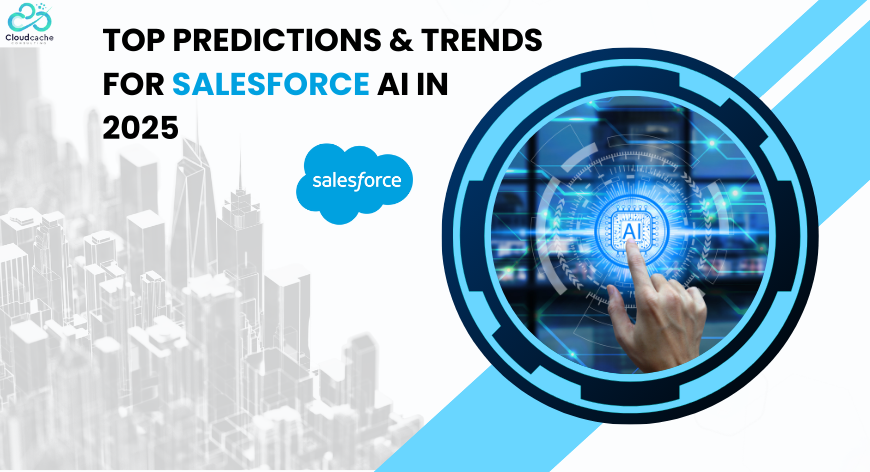
Top Predictions & Trends for Salesforce AI in 2025
When AI emerged in 1950, it operated like a strict recipe follower, adhering rigidly to instructions without adapting or improvising. Fast-forward to today and AI resembles a skilled chef—capable of tasting, learning, and creating innovative outputs. But imagine an AI that doesn’t just generate recipes but also takes action, like buying ingredients or making adjustments in real-time.
This vision aligns with agentic AI, a groundbreaking development where AI becomes autonomous, proactive, and task-driven. Leveraging large language models (LLMs), these agents understand requests, reason through decisions, and execute actions independently. While many workers are hesitant about fully autonomous AI today, a staggering 77% believe they will eventually trust it. This shift signals a promising future where businesses can enhance productivity, expand their workforce, and elevate customer experiences.
Salesforce and Its Future
Salesforce is the #1 AI CRM, empowering organizations of all sizes with tools like trusted AI agents, unified data, and Customer 360 apps. Its cutting-edge technology enables seamless collaboration between humans and AI to drive customer success.
As Salesforce, the world’s leading AI-powered CRM, explores this agentic AI era, it envisions transformative ways these agents will shape industries. With access to the latest trends, challenges, and innovations, Salesforce leaders share expert insights into how businesses can harness AI for the future.
Here’s a closer look at their predictions and insights for 2025.
Top Predictions & Trends for Salesforce AI In 2025
Autonomous AI Agents
Agentic AI systems operate autonomously, making decisions and achieving goals with minimal human input. Here’s how Salesforce predicts these systems will evolve:
- Copilots Will Become the Norm
AI’s role as a personal assistant—drafting emails, summarizing documents, or planning tasks—will become a standard feature, much like spell-check today. However, the true transformation will come when AI evolves into business-aware intelligence, tackling strategic decisions unique to industries.
- Multi-Agent Teams Will Handle Complex Tasks
In 2024, AI agents addressed simple use cases. By 2025, multi-agent collaborations will tackle intricate challenges like simulating product launches or optimizing marketing campaigns. Using technologies like Salesforce’s Atlas Reasoning Engine, these agents will demonstrate unparalleled trust and autonomy.
- From AI Skepticism to Confidence
Although two-thirds of workers have yet to adopt AI tools, trust will grow as agents streamline tasks like onboarding, content creation, and IT management. By 2025, businesses will see widespread adoption, leading to higher returns on AI investments.
- AI Agents Will Be a Key Customer Channel
Personalized AI-driven experiences will make agents a preferred method for customer engagement. Businesses will need cross-functional “Agent Experience” teams to optimize interactions and enhance the customer journey.
- Bring-Your-Own AI (BYOAI)
With advances in personal AI, consumers will increasingly bring their agents into workplaces, mirroring the earlier BYOD (Bring Your Own Device) trend. Organizations must adapt quickly to integrate these agents into their systems.
The Rise of Specialized AI Agents
- Actionable Analytics with Agentforce Inspectors
AI agents, like Salesforce’s Agentforce Inspectors, will revolutionize analytics by monitoring anomalies and triggering instant actions. For instance, they could detect a drop in sales pipeline and initiate corrective measures automatically.
- Collaborative AI Agents
AI agents will begin working in “swarms,” collaborating to solve problems at scale. These agents, tailored for specific tasks, will work together seamlessly in both personal and professional settings.
- Unified Customer Experiences
Fragmented customer journeys—where different teams handle marketing, sales, and service—will be replaced by agents capable of managing seamless transitions. These AI-driven solutions will improve personalization and satisfaction.
- 24/7 Support for Learners
AI agents will become the go-to resource for learners, offering round-the-clock assistance. While addressing social anxieties, institutions must balance AI use with opportunities for interpersonal skill development.
A Transformative Future Awaits
The agentic AI revolution is poised to redefine how businesses operate and interact with customers. Organizations can unlock unprecedented efficiency, personalization, and innovation by adopting autonomous, intelligent agents.
For enterprises ready to embrace this shift, Salesforce is a trusted partner that offers advanced tools and insights to navigate the agentic AI landscape effectively.
The future isn’t just about AI’s potential—it’s about harnessing it to create a better, smarter world for businesses and individuals alike.
Trust Issues with Autonomous AI
To unlock the full potential of agentic AI, trust is essential. However, fewer are confident about AI handling these tasks independently.
Salesforce leaders emphasize how businesses can build trust in autonomous AI and how agents can enhance security-related operations.
Trust foundation around Agentic AI Era
Businesses will need to adopt measures to ensure AI and humans collaborate effectively. This includes adding explainability features to foster understanding, creating feedback mechanisms to refine AI outputs, and focusing on human-centered designs that prioritize users. Trust will develop gradually, but it must be earned through transparency and ethical use.
- AI Agents as Security Guardians
AI agents will surpass human capabilities in safeguarding enterprise security, detecting vulnerabilities, and responding to threats proactively. As cybercriminals increasingly use AI for more advanced attacks, organizations will rely on agents for real-time threat detection and adaptive defenses. This shift will allow security professionals to concentrate on high-level strategic initiatives while AI agents manage ongoing security tasks.
- AI Governance boost to a CEO-Level Priority
With AI agents performing critical tasks and accessing sensitive data, managing them will become as vital as managing APIs. By 2026, AI governance will rise to the level of CEO oversight. Companies will need robust frameworks to audit and secure agent activity, ensuring these systems align with business goals and operate responsibly. A strong governance strategy will be key to widespread and successful AI adoption.
- Strengthening Cyber Hygiene for Agentic AI
Companies must maintain proven defenses to protect against AI-driven threats. Effective strategies include fostering a culture of trust and security, implementing multi-factor authentication (MFA), using hardware-based authentication tools, and keeping software updated. Additionally, relying on trusted platforms like Slack for communication can reduce the risks posed by phishing attempts and scams.
- Public-Private Collaboration for Trusted AI
Tech companies must engage with governments to craft AI regulations that balance innovation with public safety. Collaborative efforts will create flexible policy frameworks tailored to the diverse applications of AI. This partnership between the public and private sectors will be instrumental in fostering trust and ensuring AI is used responsibly.
- Becoming Agent-First to Build Customer Loyalty
Customers’ initial interactions with businesses will often be through AI agents like Agentforce. To succeed, brands must create AI agents that reflect their core values and priorities while embedding customer-centric ethics into every interaction. Transparency about AI use will also be crucial in building trust. Companies that invest in trustworthy, transparent AI experiences now will foster lasting loyalty and set the standard for the industry.
The Path to Trustworthy AI
As agentic AI continues to evolve, trust will be the cornerstone of its adoption. Businesses that prioritize transparency, robust security, and ethical practices will lead the way in unlocking AI's potential. By fostering collaboration and placing people at the center of these innovations, organizations can pave the way for a future where humans and AI thrive together.
How AI Agents Are Revolutionizing Work and Industries
AI agents are reshaping the workplace, freeing employees from repetitive tasks and enabling them to focus on strategic, high-value activities. Salesforce leaders envision a future where AI-driven solutions enhance efficiency and productivity across industries.
Transforming Work with AI Agents
- Simplifying Processes with AI Advancements
AI will become seamlessly integrated into daily operations, making it easier for businesses to use agents for specific processes. Organizations will securely leverage customer and business data to activate real-time actions at scale. This increased simplicity and functionality will boost confidence, utilization, and the overall value of AI in business.
- Real-Time, Embedded Analytics
By 2025, 25% of analytical insights will be delivered "ambiently," surfacing in real-time during daily activities. Whether through AI-powered recommendations during meetings or notifications on smart devices, analytics will blend seamlessly into workflows. Analysts will play a key role in curating and refining these insights to ensure they are actionable and relevant.
- AI Agents: The New Apps
AI agents are set to revolutionize how businesses operate, much like mobile apps did. Whether embedded in workflows or functioning autonomously, they will drive productivity and scalability across industries.
- Redefining Skills for the AI Future
Employees will need expertise in areas like data analysis and programming, alongside interpersonal skills such as problem-solving and communication. Businesses that invest in upskilling their workforce will thrive in the AI-driven future.
- Making Sense of Unstructured Data
Eighty percent of enterprise data is unstructured, yet it holds immense value. Companies with the tools to process this data and make it AI-ready will gain a competitive edge, generating actionable insights to improve decision-making and drive innovation.
- Upskilling for an AI-Powered Workforce
AI innovation will transform existing roles and create new job opportunities. Organizations must prioritize employee upskilling to ensure they can adapt and thrive. Employees will gravitate toward companies that provide access to cutting-edge AI tools and learning opportunities.
- Enhancing the Employee Experience
AI agents will redefine how employees interact with office spaces and workflows. By analyzing workforce planning data, AI will recommend optimal meeting spaces, streamline resource allocation, and help employers design smarter real estate portfolios.
Industry-Specific Impacts of AI Agents
- Empowering SMBs
AI agents will enable small and mid-sized businesses to scale operations, enhance customer engagement, and compete with larger organizations. From managing supply chains to personalizing marketing campaigns, these tools will drive efficiency and growth.
- Revolutionizing Nonprofit Reporting
Nonprofits will shift from annual reports to real-time insights, allowing donors to instantly understand their impact. AI agents will facilitate engagement by summarizing complex information and guiding users through donation processes seamlessly.
- Transforming Retail Experiences
AI agents will enhance customer service and sales by providing personalized recommendations and streamlining purchasing processes. Retailers will use AI to create digital personal shoppers, optimizing the shopping journey and increasing sales efficiency.
- Scaling Nonprofit Impact
AI agents will help nonprofits maximize their impact by analyzing staffing needs and co-creating volunteer roles. They will also help companies match employees with meaningful volunteering opportunities, fostering stronger community engagement.
- Accelerating AI Adoption in Education
Education institutions will use AI agents to optimize operational costs and reduce staff burnout. From scheduling appointments to assisting with enrollment, agents will take on time-intensive tasks, allowing educators to focus on core responsibilities.
- Making Government Services Accessible
By 2025, AI agents will streamline government processes, enabling citizens to renew passports, register vehicles, or apply for benefits with ease. This technology will improve efficiency, reduce costs, and enhance citizen engagement.
Conclusion
With AI-operated agents, Companies across industries are envisioning the modern revamped workspace. By taking on repetitive tasks, providing real-time insights, and streamlining operations, they empower businesses and employees to achieve unprecedented levels of efficiency and innovation. Companies that embrace AI and invest in their workforce's skills will lead the way in this transformative era.
CloudCache Consulting helps companies embrace AI with its Salesforce Consulting Services. We have a wide library of Salesforce Professional Resources that one can use. Book a free consultation with us today, you can also read our clients' words in Upwork.
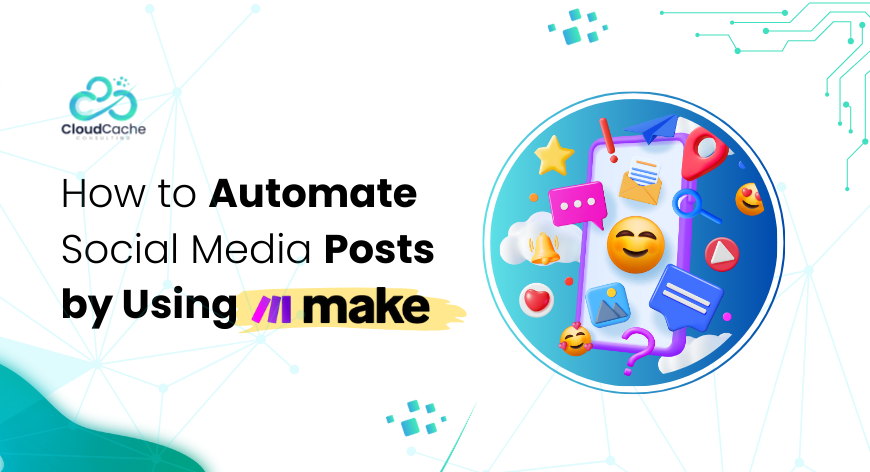
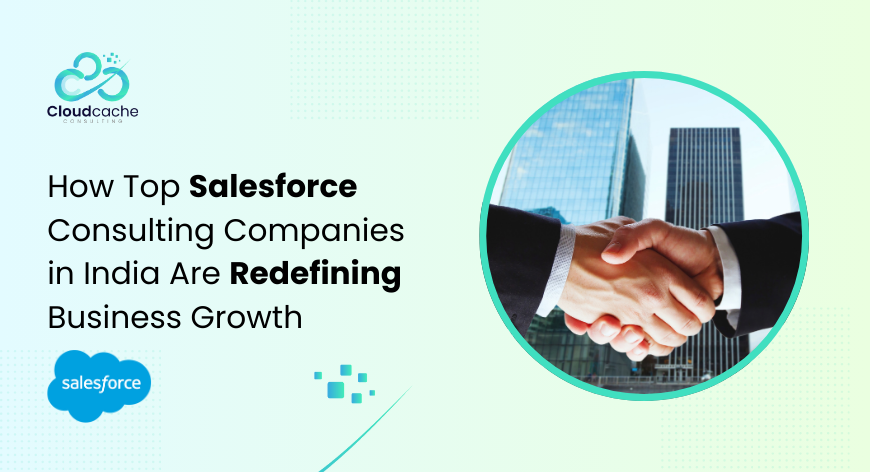
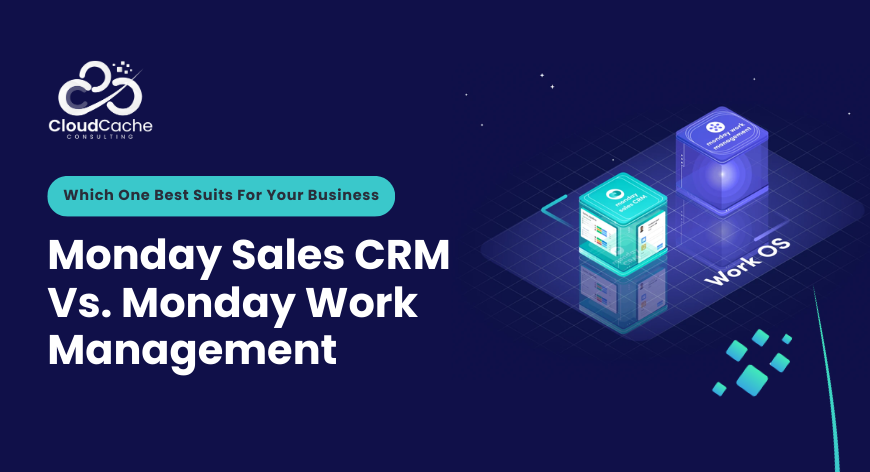
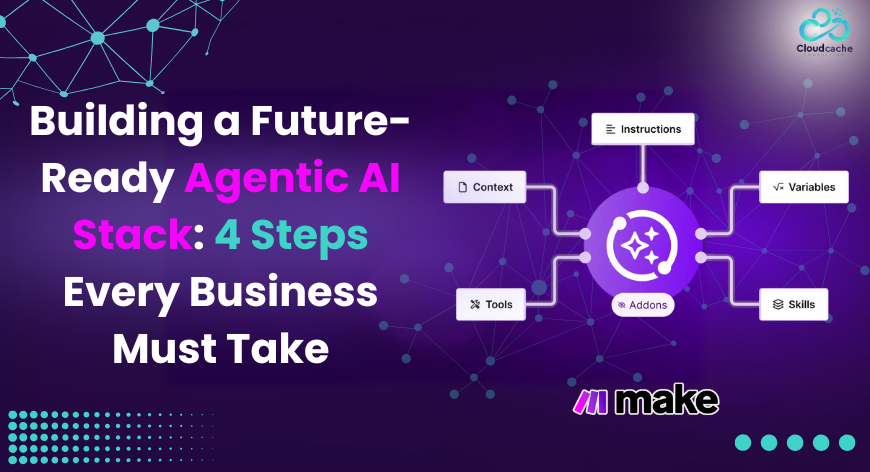
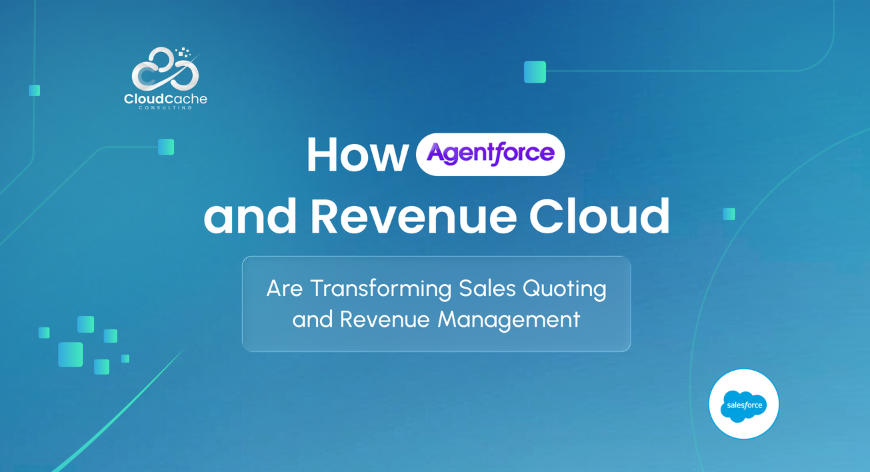
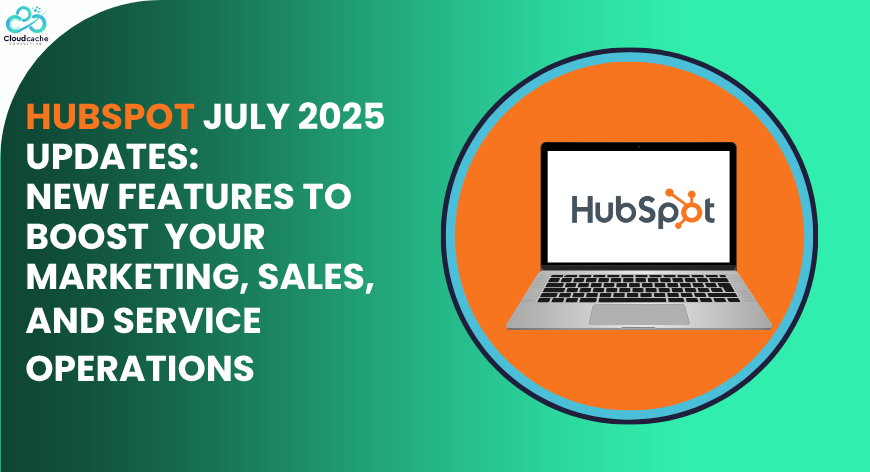
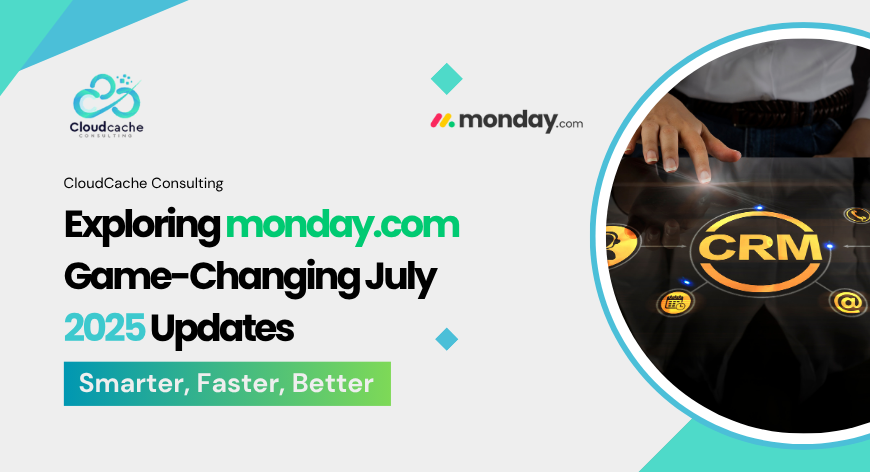
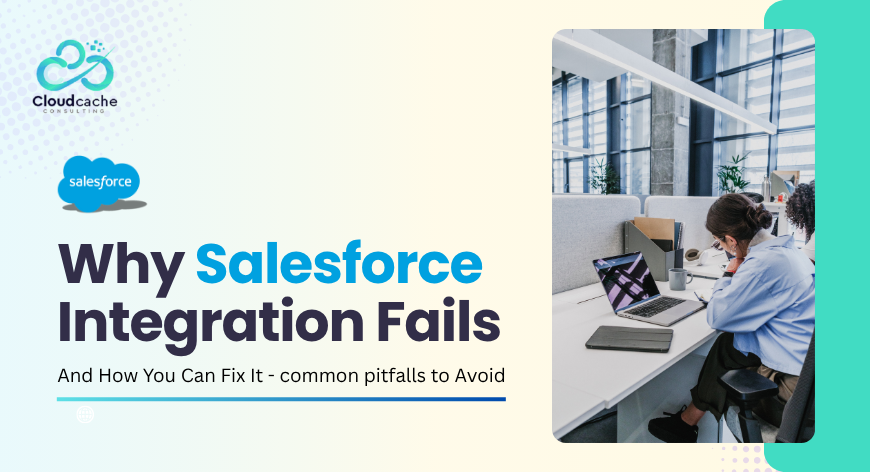
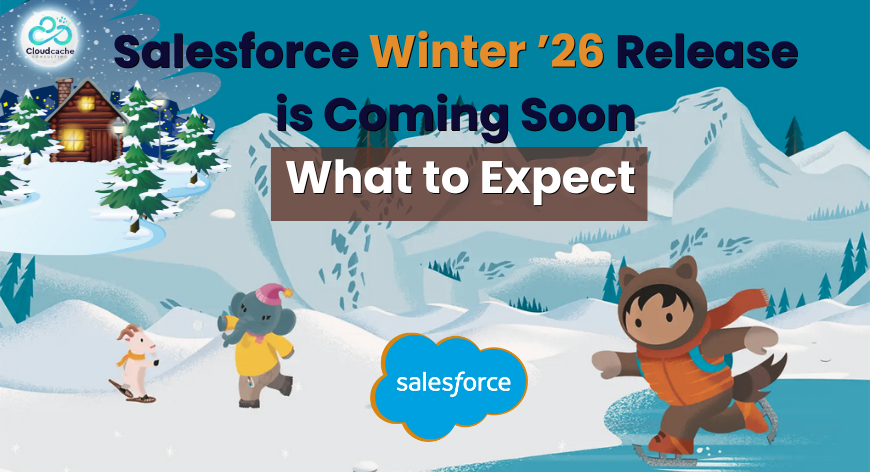
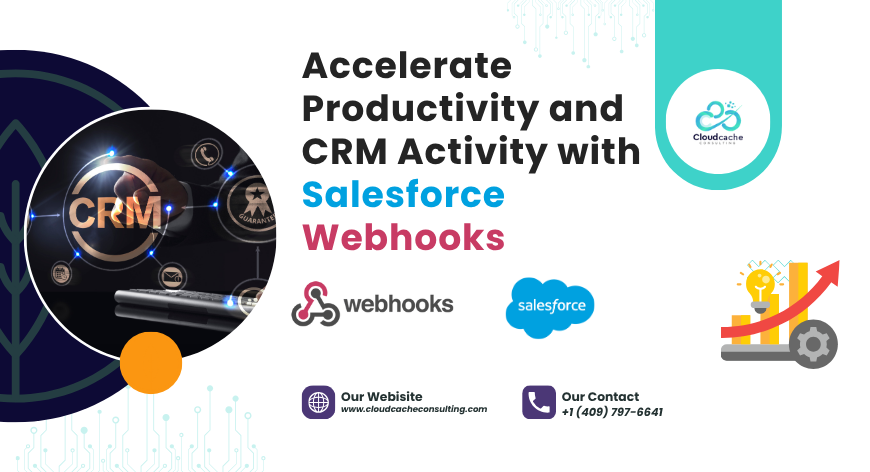

Leave a Reply
Your email address will not be published.